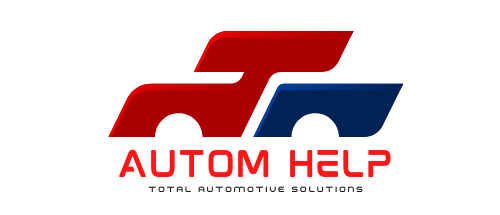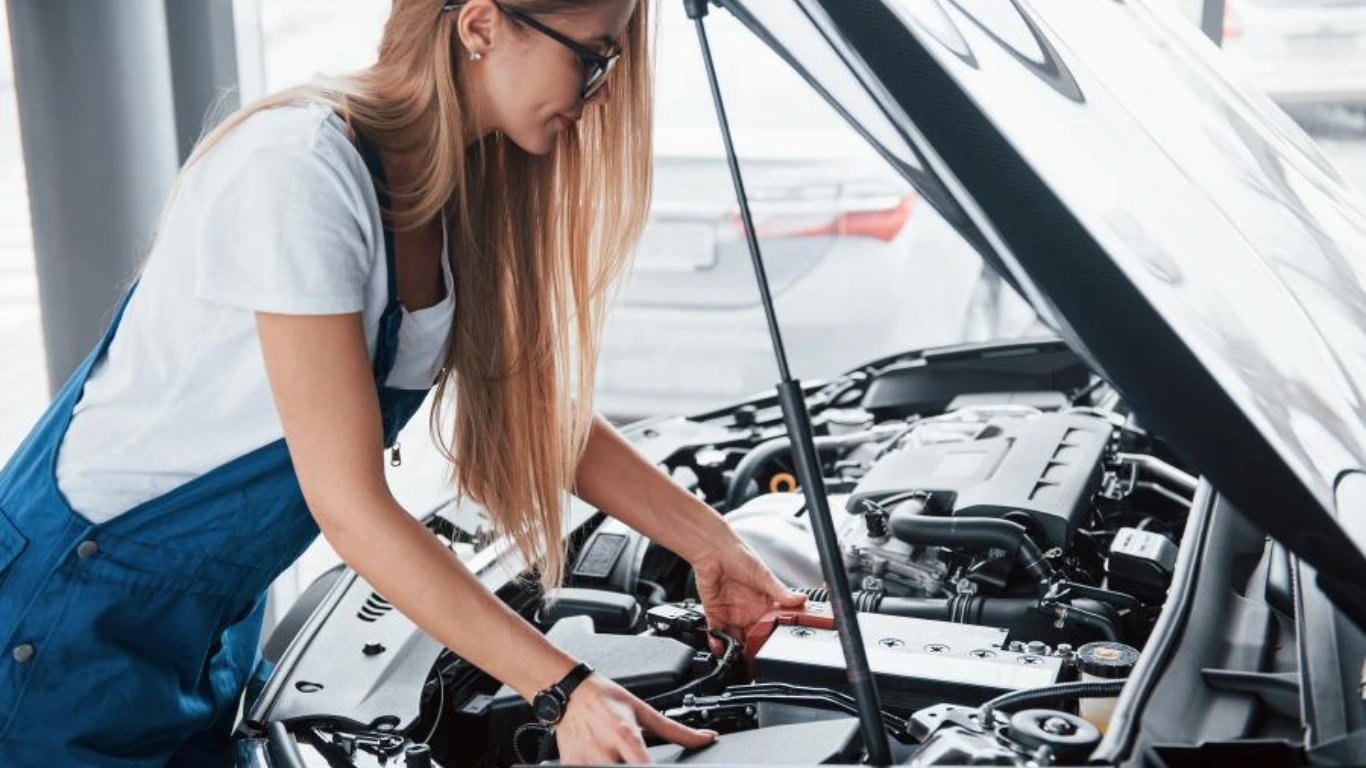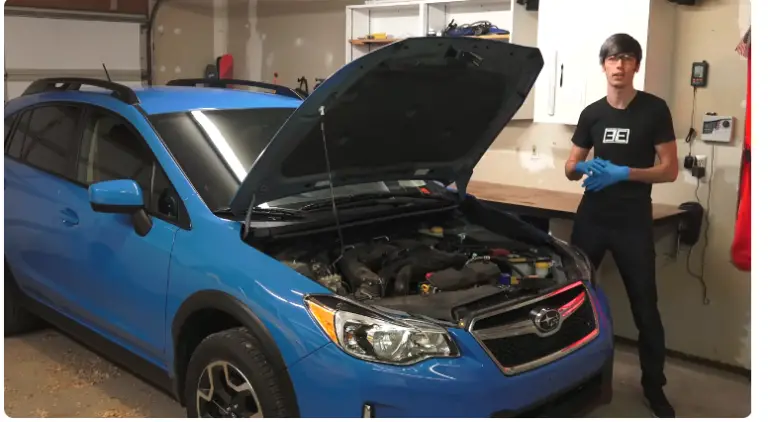A Complete Guide to Effectively Maintaining Your Car
Maintaining your car effectively requires regular inspections, scheduled maintenance, and timely repairs.
Why Car Maintenance Matters
The Importance Of Regular Car Maintenance
Regular car maintenance is essential to ensure the longevity and optimal performance of your vehicle. Taking care of routine maintenance tasks can help you avoid costly repairs down the line and keep your car running smoothly. Here’s why car maintenance matters:
- Extend the lifespan of your car: Regular maintenance, such as oil changes, filter replacements, and fluid checks, can help prolong the life of your car’s engine and other vital components. By addressing minor issues promptly, you can prevent them from turning into major problems that may require expensive repairs or even the replacement of the entire engine.
- Ensure safety on the road: Regularly maintaining your car also plays a crucial role in ensuring your safety and the safety of other road users. Properly inflated tires, well-functioning brakes, and functioning lights are just a few examples of safety-related maintenance tasks that can prevent accidents and keep you and your passengers safe.
- Optimize fuel efficiency: Neglecting car maintenance can decrease your vehicle’s fuel efficiency, causing you to spend more money on fuel. Regular tune-ups, air filter replacements, and tire rotations can help improve gas mileage, saving you money at the pump.
- Maintain warranty coverage: Following the manufacturer’s recommended maintenance schedule is essential to maintain your vehicle’s warranty coverage. Failing to perform the required maintenance may void your warranty, leaving you responsible for repair costs that would otherwise be covered.
- Preserve resale value: If you plan on selling or trading in your car in the future, keeping up with maintenance can help preserve its resale value. A well-maintained car with a detailed service history will attract more potential buyers and command a higher price.
- Prevent roadside breakdowns: Regular inspections and maintenance can catch potential issues before they cause a breakdown on the road. Being stranded due to a mechanical failure is not only inconvenient but can also be dangerous, especially in remote or unfamiliar areas.
How Proper Maintenance Saves You Money In The Long Run
Investing time and money in regular car maintenance can actually save you significant amounts of money in the long run. Here’s how:
- Prevents major repairs: By addressing minor issues during routine maintenance, you can prevent them from escalating into major problems that require costly repairs. Regular oil changes, for example, help lubricate the engine and prevent friction-related damage that could lead to engine failure.
- Increases fuel efficiency: A well-maintained car operates more efficiently, resulting in better fuel economy. Regularly checking and replacing the air filter, monitoring tire pressure, and aligning the wheels can improve gas mileage and reduce your fuel expenses over time.
- Avoids premature part failure: Neglected maintenance tasks, such as ignoring worn-out brake pads or failing to replace timing belts, can cause expensive components to fail prematurely. Promptly addressing these maintenance needs can help you avoid costly repairs and replacements.
- Preserves the value of your car: A well-maintained car retains its value better than one that has been neglected. If you decide to sell or trade in your vehicle, you can expect a higher resale or trade-in value if the car has a documented history of regular maintenance.
- Minimizes roadside emergencies: Regular maintenance significantly reduces the likelihood of experiencing unexpected breakdowns on the road. Repair costs associated with emergency situations, such as towing fees or after-hours service charges, can be costly. Proper maintenance helps minimize the risk of these events occurring.
Regular car maintenance is not only crucial for the safety and performance of your vehicle but also for your financial well-being. By investing in preventive maintenance and addressing issues promptly, you can save money on repairs, increase fuel efficiency, preserve your car’s value, and prevent unexpected breakdowns.
Don’t overlook the importance of regular car maintenance – it’s an investment that pays off in various ways.
Essential Car Maintenance Tasks
Proper car maintenance is essential for keeping your vehicle in optimal condition and ensuring your safety on the road. Regular maintenance tasks can prevent costly repairs and extend the lifespan of your car. Here are some key car maintenance tasks that should be part of your routine:
Changing The Oil And Oil Filter
- Regularly changing the engine oil and oil filter is crucial for maintaining good engine health.
- The oil lubricates the engine, reducing friction and preventing overheating.
- Over time, oil becomes contaminated with dirt and debris, which can cause engine damage if not replaced.
- Aim to change the oil and oil filter every 3,000 to 5,000 miles or as recommended by your car’s manufacturer.
Checking And Replacing The Air Filter
- The air filter prevents dirt, dust, and debris from entering the engine.
- Inspect the air filter regularly and replace it when it becomes clogged or dirty.
- A clean air filter ensures efficient combustion and helps improve fuel efficiency.
- Make sure to follow your car’s manual for the recommended interval of air filter replacement.
Inspecting And Maintaining The Tires
- Properly inflated and maintained tires contribute to optimal fuel efficiency and better handling.
- Regularly check the tire pressure using a tire gauge and inflate them to the recommended levels.
- Inspect the tires for any signs of wear, punctures, or bulges and replace them as necessary.
- Rotate your tires regularly to promote even wear and extend their lifespan.
Maintaining The Battery
- A well-maintained battery is crucial for starting your car and powering essential components.
- Inspect the battery terminals for corrosion and clean them if necessary.
- Check the battery’s overall condition and ensure it is secure in its place.
- If your battery is more than three years old or showing signs of weakness, consider getting it tested or replaced.
Regularly Checking And Topping Off Fluids
- Your car relies on various fluids to function properly, such as coolant, brake fluid, power steering fluid, and windshield washer fluid.
- Regularly check the fluid levels and top them off when needed.
- Refer to your car’s manual for the specific guidelines and recommended intervals for checking and replacing fluids.
- Proper fluid levels contribute to the overall performance and longevity of your vehicle.
Keeping The Engine Cool With Proper Coolant Levels
- The engine coolant, also known as antifreeze, regulates the engine’s temperature and prevents it from overheating.
- Check the coolant level regularly and top it off if necessary.
- Ensure that the coolant mixture is correct as recommended in your car’s manual for optimal performance.
- A well-maintained cooling system helps prevent engine damage and breakdowns.
By incorporating these essential car maintenance tasks into your routine, you can ensure that your vehicle remains in top condition and enjoy a smoother, safer driving experience. Regular maintenance not only saves you from unexpected breakdowns but also saves you money on major repairs in the long run.
Take care of your car, and it will take care of you on the road.
Simple Steps For Diy Car Maintenance
Regular car maintenance is essential to keep your vehicle running smoothly and extend its lifespan. While some tasks are best left to professionals, there are several simple maintenance steps you can do yourself. Not only will this save you money, but it will also give you a sense of accomplishment.
In this section, we will go through some basic diy car maintenance tasks that will help you keep your car in top shape.
How To Change The Oil And Oil Filter
Changing your car’s oil and oil filter is one of the most important maintenance tasks you can do. It helps keep your engine clean and running efficiently. Here are the steps to follow:
- Gather the necessary materials: New oil filter, new oil, oil pan, socket or wrench, funnel, and gloves.
- Locate the oil drain plug underneath your car and place the oil pan beneath it.
- Unscrew the drain plug and let the old oil drain completely.
- Once the oil has drained, remove the old oil filter using the appropriate tool.
- Before installing the new oil filter, apply a thin layer of oil to the rubber gasket.
- Install the new oil filter securely.
- Replace the drain plug and tighten it properly.
- Use a funnel to pour the correct amount of new oil into the engine.
- Double-check the oil level using the dipstick.
- Dispose of the old oil and filter responsibly.
Steps For Checking And Replacing The Air Filter
A clean air filter is crucial for good engine performance and fuel efficiency. Follow these steps to check and replace your car’s air filter:
- Locate the air filter housing, usually a rectangular box near the engine.
- Open the housing and remove the old air filter.
- Inspect the old filter for dirt, debris, or damage.
- If the filter is dirty, replace it with a new one of the same size and type.
- Ensure the new filter is properly seated in the housing.
- Close the air filter housing securely.
Proper Techniques For Inspecting And Maintaining The Tires
Your car’s tires play a vital role in safety and overall performance. Follow these steps to inspect and maintain your tires effectively:
- Check the tire pressure regularly using a tire pressure gauge.
- Inflate or deflate the tires to the recommended psi if needed.
- Inspect the tread depth using a tread depth gauge or the penny test.
- Rotate the tires every 5,000 to 7,000 miles for even wear.
- Ensure proper wheel alignment to prevent uneven tire wear.
- Regularly inspect tires for any signs of damage, such as cuts or bulges.
- Replace tires if the tread is worn thin or if there is noticeable damage.
Maintaining The Battery And Checking Connections
A well-maintained battery ensures reliable starting and electrical performance. Follow these steps to maintain your car’s battery:
- Inspect the battery regularly for corrosion, leaks, or damage.
- Clean the battery terminals and connections using a mixture of baking soda and water.
- Tighten any loose connections to ensure a good electrical connection.
- Check the battery voltage using a multimeter to ensure it is within the recommended range.
- If necessary, recharge the battery or replace it if it is old or not holding a charge.
Step-By-Step Guide For Checking And Topping Off Fluids
Regularly checking and topping off your car’s fluids is essential for proper operation. Here is a step-by-step guide:
- Refer to your car’s owner manual to locate the various fluid reservoirs (e.g., engine oil, coolant, brake fluid, power steering fluid, windshield washer fluid).
- Open each reservoir and visually inspect the fluid levels.
- If any fluid is low, use the appropriate fluid recommended by the manufacturer to top it off.
- Be cautious not to overfill any reservoir, as it can cause damage or leaks.
- Check for any signs of leaks, such as puddles or stains, and address them promptly.
Ensuring Proper Coolant Levels For Engine Health
Coolant is vital for preventing overheating and ensuring engine health. Follow these steps to ensure proper coolant levels:
- Park your car on a level surface and allow the engine to cool completely.
- Locate the coolant reservoir and check the fluid level against the markings on the reservoir.
- If the coolant level is low, add a 50/50 mixture of coolant and distilled water to reach the proper level.
- Avoid opening the radiator cap when the engine is hot, as it can cause serious burns.
- Periodically check for coolant leaks and address any issues promptly.
By following these simple steps for diy car maintenance, you can keep your vehicle in good condition and avoid costly repairs. Regular maintenance not only helps prolong the lifespan of your car but also ensures safety and optimal performance on the road.
Remember to consult your car’s owner manual for specific instructions and recommendations.
How To Find A Reliable Car Mechanic
The Importance Of Finding A Trustworthy Mechanic
When it comes to maintaining your car effectively, finding a reliable mechanic is crucial. A trustworthy mechanic can make all the difference in ensuring that your vehicle runs smoothly and remains in good condition. Here are a few reasons why it’s essential to find a mechanic you can trust:
- Quality of work: A reliable mechanic will have the necessary skills and experience to diagnose and fix any issues with your car accurately. They will use high-quality parts and follow proper procedures, ensuring that the work done on your vehicle is of the highest standard.
- Peace of mind: Knowing that your car is in the hands of a trustworthy mechanic brings peace of mind. You can feel confident that they will not take advantage of you by recommending unnecessary repairs or overcharging for their services.
- Long-term savings: By choosing a reliable mechanic, you can avoid unnecessary expenses in the long run. They will perform regular maintenance and catch any problems before they escalate into more significant issues that could be costly to fix.
Tips For Researching And Selecting A Reliable Mechanic
When it’s time to find a reliable mechanic, there are a few steps you can take to ensure you make the right choice. Consider the following tips for researching and selecting a trustworthy mechanic:
- Ask for recommendations: Seek recommendations from friends, family, or colleagues who have experienced positive experiences with a mechanic. Their first-hand experiences can provide valuable insights into the reliability and trustworthiness of a particular mechanic.
- Read online reviews: Browse through online review platforms to see what other customers have to say about local mechanics. Look for consistent positive feedback regarding their honesty, reliability, and quality of work. Take note of any red flags mentioned in negative reviews as well.
- Check certifications and accreditations: Look for mechanics who have earned certifications from reputable automotive organizations. Certifications, such as those from the automotive service excellence (ase), indicate a mechanic’s commitment to staying up-to-date with industry standards.
- Visit the shop: Before making a decision, visit the mechanic’s shop in person. Pay attention to the cleanliness and organization of the facility, as it reflects their level of professionalism and attention to detail.
Red Flags To Watch Out For When Choosing A Mechanic
While researching and selecting a reliable mechanic, it’s important to be aware of red flags that may indicate their lack of trustworthiness. Keep an eye out for the following warning signs:
- Lack of transparency: A mechanic who is hesitant to provide clear explanations of the repairs needed or the breakdown of costs may be trying to hide something.
- Pushy upselling: Be cautious of mechanics who constantly recommend additional services or unnecessary repairs without proper explanation or valid reasons.
- No warranty or guarantees: Reliable mechanics stand behind their work with warranties or guarantees. If a mechanic does not offer any form of warranty, it may raise questions about their confidence in their own repairs.
- Poor communication: Communication is key when it comes to trusting your mechanic. If they fail to communicate effectively, disregard your concerns, or provide vague answers to your questions, it may indicate a lack of professionalism and trustworthiness.
Questions To Ask Before Entrusting Your Car To A Mechanic
Before finalizing your choice and handing over your vehicle to a mechanic, be sure to ask the following questions to ensure they are the right fit for your needs:
- What certifications or training do you have?
- Do you specialize in any specific car makes or models?
- Can you provide a detailed estimate of the repairs and their costs?
- How long will the repairs or maintenance take?
- Do you offer any warranties or guarantees on your work?
- Can you explain the specific repairs or maintenance required in simple terms?
- Do you use genuine parts, and if not, what type of parts do you use?
By seeking answers to these questions, you can gain a better understanding of the mechanic’s qualifications, expertise, and commitment to providing reliable services for your vehicle.
Car Maintenance Schedule
Understanding The Manufacturer’S Recommended Maintenance Schedule
Maintaining your car is crucial for its longevity and optimal performance. Understanding the manufacturer’s recommended maintenance schedule is the first step in ensuring that your vehicle remains in top condition. Here are the key points to consider:
- The manufacturer’s recommended maintenance schedule provides a guideline for when specific car components need attention.
- It includes routine maintenance tasks such as oil changes, filter replacements, and tire rotations.
- The schedule is based on the average driving conditions and vehicle usage, taking into account factors like climate and driving habits.
- Consulting your car’s manual or contacting the manufacturer’s customer support can help you access the recommended maintenance schedule for your vehicle.
- Adhering to this schedule is essential to keep your car in warranty compliance and to prevent any potential issues that may arise due to neglected maintenance.
The Importance Of Following The Schedule For Optimal Performance
Following the manufacturer’s recommended maintenance schedule is not just a suggestion but a vital aspect of car ownership. Here is why it’s crucial to stick to the schedule for optimal performance:
- Regular maintenance helps identify potential problems early on, preventing them from worsening and causing costly repairs down the line.
- Properly maintained vehicles have better fuel efficiency and lower emission rates, contributing to a cleaner environment.
- Sticking to the schedule ensures that all components of your car are functioning correctly, providing a safe driving experience for you and your passengers.
- Neglected maintenance can lead to decreased performance, reduced lifespan, and even safety hazards.
How To Create A Personalized Maintenance Schedule Based On Your Driving Habits
While the manufacturer’s recommended maintenance schedule is a valuable resource, creating a personalized maintenance plan based on your driving habits can further enhance the care of your vehicle. Consider the following points when crafting your customized schedule:
- Assess your driving conditions: High temperatures, heavy traffic, and dusty roads can have an impact on specific car components. Take note of the conditions you frequently encounter.
- Evaluate your driving habits: Do you frequently engage in short trips or long-distance driving? Do you drive on rough terrains or encounter potholes frequently?
- Consult with a trusted mechanic: Seeking professional advice can help you tailor the maintenance schedule to your specific needs. They can provide valuable insights based on their expertise and experience.
- Keep track of maintenance tasks performed: Maintain a log of the maintenance tasks you perform, including dates and mileage. This record will help you stay organized and ensure that no task is overlooked.
- Regularly inspect your vehicle: In addition to scheduled maintenance, perform regular visual inspections of your car. Look for signs of wear and tear, unusual noises, or fluid leaks. Promptly address any concerns that arise.
By understanding the manufacturer’s recommended maintenance schedule, adhering to it diligently, and personalizing it based on your driving habits, you can effectively maintain your car and enjoy optimal performance for years to come. Remember, a well-maintained car not only saves you money on potential repairs but also provides a safe and enjoyable driving experience.
Signs Your Car Needs Immediate Attention
Common Warning Signs Of Potential Issues
- Unusual noises: If you hear any strange noises coming from your car, such as squealing, grinding, or knocking sounds, it could indicate a problem with the engine, brakes, or other components. It’s important to address these noises promptly to prevent further damage.
- Vibrations: Excessive vibrations felt through the steering wheel, seats, or pedals can be a sign of an issue with the tires, suspension system, or wheel alignment. Ignoring these vibrations can lead to unsafe driving conditions and premature wear and tear on the car.
- Fluid leaks: If you notice any leaks under your car, such as oil, coolant, or brake fluid, it’s essential to have them checked out immediately. Leaking fluids can indicate a problem with the engine, cooling system, or braking system, and ignoring them could result in major mechanical issues.
- Decreased performance: If you notice a significant decrease in your car’s performance, such as sluggish acceleration, difficulty starting, or reduced fuel efficiency, it could be a sign of an underlying problem. Getting it checked by a qualified mechanic can help identify and address the issue before it worsens.
- Warning lights: Pay attention to any warning lights that illuminate on your car’s dashboard. These lights are designed to alert you to potential problems with various systems, such as the engine, brakes, or airbags. Understanding the meanings of these warning lights and taking appropriate action can prevent further damage and ensure your safety on the road.
How To Identify And Address Unusual Sounds And Vibrations
- Listen closely: Take note of any unusual sounds coming from your car while driving or idling. Turn off the radio and air conditioning to better hear the sounds.
- Locate the source: Try to pinpoint where the sound is coming from. Is it coming from the engine, wheels, or elsewhere? Identifying the source can help your mechanic diagnose the issue more accurately.
- Describe the sound: When explaining the sound to your mechanic, be as detailed as possible. Use descriptors like squealing, grinding, knocking, or rattling to provide clarity.
- Have it inspected: If you’re unsure about the cause of the sound or if it persists after taking some initial steps, it’s best to bring your car to a qualified mechanic. They have the expertise to diagnose and fix the issue appropriately.
Recognizing Dashboard Warning Lights And Their Meanings
- Consult the owner’s manual: Your car’s owner’s manual is an invaluable resource when it comes to understanding the meaning of warning lights. It provides detailed explanations of each light and what action you need to take.
- Take warning lights seriously: Ignoring warning lights can result in further damage to your car or put you at risk. If a warning light illuminates, it’s crucial to address the issue promptly.
- Check engine light: The check engine light is one of the most common warning lights. It can indicate various issues, from a loose gas cap to a more serious engine problem. Don’t ignore this light; have your car inspected as soon as possible.
- Abs light: The abs light indicates a problem with the anti-lock braking system. This light should never be ignored, as it can impact your car’s braking performance and safety.
- Airbag light: The airbag light indicates a fault in the airbag system. It’s essential to have this issue resolved promptly to ensure your safety in the event of an accident.
Remember, paying attention to these warning signs can help you address potential problems before they escalate. Regular maintenance and prompt action are key to keeping your car running smoothly and ensuring your safety on the road.
Extending The Life Of Your Car Through Maintenance
The Role Of Maintenance In Prolonging Your Car’S Life
Regular maintenance plays a crucial role in extending the lifespan of your car. By taking care of your vehicle and addressing any issues promptly, you can significantly increase its longevity. Here are some key points to remember:
- Regular servicing: Follow your car manufacturer’s recommended service schedule to ensure that your vehicle receives routine maintenance. This includes oil changes, filter replacements, and inspections of various components.
- Fluid checks: Regularly check and top up your car’s fluids, such as engine oil, coolant, brake fluid, and power steering fluid. Adequate fluid levels and quality are essential for the proper functioning of your vehicle’s systems.
- Tire maintenance: Keep your tires properly inflated and ensure they have sufficient tread depth. Incorrect tire pressure and worn-out tires can affect your car’s performance and safety.
- Battery care: Check your battery regularly, especially before long trips. Clean any corrosion, tighten connections, and replace the battery if it’s old or weak.
- Lubrication: Regularly lubricate your car’s moving parts to minimize friction and wear. This includes hinges, door locks, and suspension components.
- Belts and hoses: Inspect the belts and hoses under the hood for signs of cracking, fraying, or damage. Replace them if necessary to prevent sudden breakdowns.
Tips For Preserving Your Car’S Exterior And Interior
Taking care of both the external and internal aspects of your car is crucial for maintaining its value and aesthetics. Here are some tips to keep your car looking and feeling its best:
- Wash regularly: Regularly wash your car to remove dirt, grime, and pollutants that can damage the paintwork. Use a gentle car wash soap and avoid abrasive materials.
- Waxing: Apply wax to your car’s exterior regularly to protect the paint from uv rays and give it a shiny, polished appearance.
- Protect from the sun: Park in shaded areas or use a car cover to shield your car from direct sunlight. The sun’s rays can fade the paint, crack the dashboard, and damage the upholstery.
- Clean the interior: Vacuum and clean the interior regularly to remove dust, debris, and spills. Use appropriate cleaning products for different surfaces, such as fabric, leather, or vinyl.
- Use seat covers and floor mats: Protect your car’s upholstery and flooring by using seat covers and floor mats. These can be easily removed and cleaned, preventing permanent stains and wear.
- Avoid eating and smoking inside: Food particles and cigarette smoke can leave unpleasant odors and stains. It’s advisable to avoid eating or smoking inside the car.
How To Maintain Your Car’S Resale Value Through Regular Maintenance
Consistent maintenance not only ensures the longevity of your car but also helps retain its resale value. Here’s how regular maintenance can contribute to maintaining a higher resale value:
- Service records: Keep a record of all maintenance and repairs performed on your car. Having a documented history shows potential buyers that the vehicle has been well-maintained and cared for.
- Address issues promptly: Don’t ignore minor issues or strange noises. Addressing them promptly prevents them from becoming more significant and more expensive problems in the future.
- Maintain a clean appearance: Regularly clean the interior and exterior to maintain a fresh and appealing look. A well-maintained car will attract more potential buyers and command a higher price.
- Follow manufacturer’s recommendations: Adhering to the manufacturer’s recommended maintenance schedule not only keeps your car running smoothly but also ensures that it retains its optimal performance and value.
- Preserve documentation: Keep all receipts, service records, and relevant documents associated with your car’s maintenance. These records can provide evidence of your car’s care and attention, reinforcing its resale value.
By following these maintenance tips and recommendations, you can significantly extend the life of your car, preserve its appearance, and maintain its resale value. Regular care and attention will ensure your vehicle becomes a reliable companion for many years to come.
Conclusion
To effectively maintain your car, prioritize regular servicing and follow the manufacturer’s guidelines for oil changes, filter replacements, and tire rotations. Keep your car clean, both inside and out, to prevent dirt and grime from causing damage. Regularly check and top-up fluids, such as coolant and brake fluid, to ensure optimal performance.
Take care of minor repairs promptly to prevent them from developing into major issues. When it comes to fuel efficiency, practice good driving habits, such as accelerating smoothly and avoiding excessive idling. It’s also crucial to pay attention to warning signs, such as strange noises or warning lights, and address them promptly.
Taking these steps will not only extend the lifespan of your vehicle but also enhance your driving experience. So, be proactive in maintaining your car to keep it running smoothly for years to come.



![Homemade Traction Mats [Unlock Your Vehicle’s Grip]](https://automhelp.com/wp-content/uploads/2024/03/Homemade-Traction-Mats.webp)
![What’s a Mustang GT’s Top Speed? [2024]](https://automhelp.com/wp-content/uploads/2024/03/Whats-a-Mustang-GTs-Top-Speed.webp)


